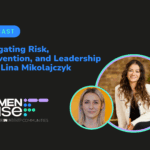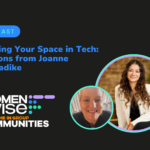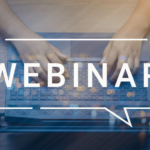Article written by Katy Bhatti, Contracts Manager, The IN Group.
People who use wheelchairs ‘go for walks.’ People with visual impairments may say they are pleased to ‘see you.’ According to the gov.uk website, most disabled people are comfortable using everyday phrases when talking about disability.
One thing you’ll often hear at an Investigo diversity, equality and inclusion (DEI) committee meeting is that it’s a ‘safe space,’ and it is. We’re all coming from a good place, so even if a word lands in the wrong way, we know the intent behind it was good. Yet, one of the things we hear time and again is the question, “What if I say the wrong thing?”
Jennie Berry, a disabled content creator, recently highlighted the negative language often used when talking about disability. Jennie says, “I’m loved, I’m safe, I’m free. Being disabled is by no means a walk in the park,” showing an example of how disabled people do use everyday phrases. Jenny then asks that “next time you see a disabled person, try not to pity them. Have an open mind about their life and how fulfilling it may be.”
There are countless similar posts from disabled content creators on social media demonstrating the importance of the language used around disability and to people with disabilities.
Should we use a different word?
I would guess that when most people hear the word ‘disabled,’ the image of a person in a wheelchair immediately comes to mind. If you think about disabled signage in parking spaces, toilets or a multitude of other places in our daily lives, it almost always has a wheelchair symbol attached to it. So it’s natural that every time we see disabled signs with wheelchairs, we’ll associate wheelchairs with the word disabled.
It’s interesting that when I put the word ‘disabled’ into Google, it’s only in the 78th picture that I found a person not in a wheelchair. Disabilities come in a whole range of forms. In fact, only 8% of disabled people use a wheelchair, and many disabilities are invisible, such as chronic pain conditions.
So, who is disabled?
You are disabled, according to the Equality Act 2010, if you have a physical or mental impairment that has a substantial and long-term adverse effect on your ability to carry out normal day-to-day activities. Substantial is more than minor or trivial, and long-term means 12 months or more.
There are various glossaries and guides which tell you which words to use and which not to use. There is generally a consensus about the words not to use. Yet even within the disabled community, there are differences of opinion. Two main approaches steer this conversation: the Person First approach and the Social Model.
The Person First approach says that a disability is something a person has, rather than defining them as that condition. It is the person who comes before the characteristic of being disabled. This means that under the Person First approach, you should use the phrase ‘a person with a disability’ rather than ‘a disabled person.’
On the other hand, the Social Model states that people are disabled by barriers in society, not by their impairment or difference. To remove barriers, it’s attitudes that need to change, in part through the use of language and the way we speak. Using the term ‘a disabled person’ – rather than medical descriptions – is considered by the Social Model to be a positive way of affecting how we see disabled people in society.
Both these approaches agree that the focus should be on the person and that disability doesn’t define them. What they disagree on is how to do this.
One thing you should not do is tell someone how they should define themselves.
I was once told that I must now call myself deaf and not ‘hearing impaired’ anymore. If you’re referring to the Deaf community, then ‘deaf’ is the appropriate word to use. That said, every deaf person must be free to define themselves in the way that they choose. Some people may not agree with me on this; they may feel that everyone should use the same words so that society will use them too.
Is it an identification or language issue at all?
When looking for people to join our disability and neurodiversity panel, I was nervous to approach people in the business. I didn’t want to offend them by talking about their condition as a disability if they’ve never thought of it like that. This might have been down to my own perception of the word disabled, but how would I know?
Perhaps it’s not the identification issue at all. Maybe people are worried that attitudes towards disabled people – particularly in the workplace – could have a negative impact on their career success. The Social Model says that words are key to changing these perceptions, but this takes time.
Are people reluctant to identify with the word disabled?
When we were talking about why there seem to be fewer allies for disability and neurodiversity compared to some of the other panels, we wondered whether some people may not identify as disabled. Approximately 15% of the British population are disabled. With just under 300 people in the business, this would suggest around 45 will have disabilities.
Of course, not everyone who is disabled would automatically want to be involved in ‘extracurricular’ activities at work. It could be a factor that the pool of people identifying as disabled is smaller than those who technically or legally are.
In fact, a study in Rehabilitation Psychology by Bogart found that only 12% of those with a health condition identified as disabled. Taking this number into account, that equates to only five people across The IN Group who would identify as disabled.
Factors which were found to increase the chance of someone identifying as disabled were stigma and severity of impairment. If someone has a negative experience related to their health condition, they may find identifying as disabled empowering or useful. It may make their life much easier. For example, they’d be entitled to various adjustments, which could be the difference between being able to take a job or not.
I just want to know what to say!
How do we know what language to use if disabled people, or people with a disability, can’t agree? Good question. As they say, you can’t please everyone all the time. So aiming to be 100% right in such a complex and subjective arena is impossible. My advice is this: say what you say with kindness and try to educate yourself on what you’re talking about.
How can we know things are equal or unequal, inclusive or non-inclusive if we’re too scared to talk about them? What would be far worse is not saying anything at all.
It was interesting to hear a colleague recently describe a conversation with somebody else in the business. My colleague was shocked to learn that the person had no idea about an issue which they thought was blindingly obvious to all. We all experience things differently. We can’t assume that everyone has the same view and understands these topics in the same way, even if we think it goes without saying.
What DEI needs is engagement; we need people to feel safe to talk about disability. Disability is experienced by more than one in ten of us, so joining the conversation is positive. Even if you fumble along the way at times, best efforts are what count.
Share this:




